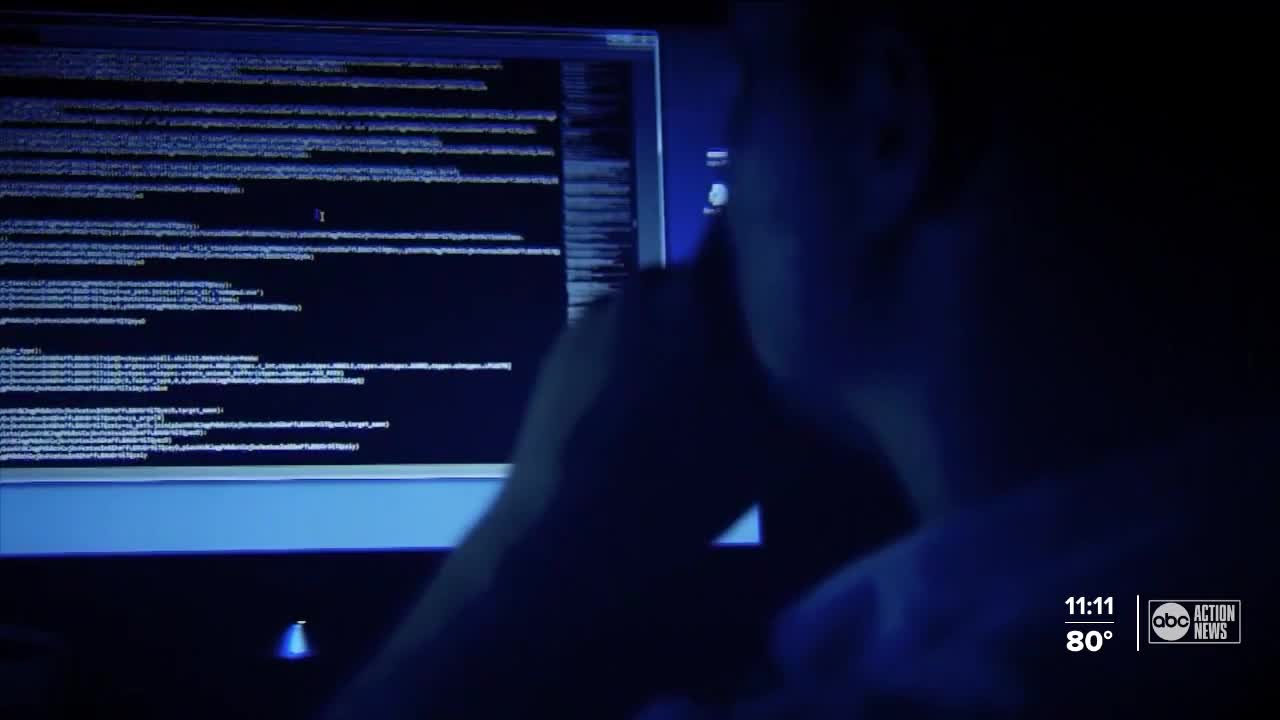TAMPA, Fla. — Online criminals are staying busy during the pandemic.
The FBI reports its Internet Crime Complaint Center logged its six millionth complaint on May 15. The center saw complaints increase nearly 70% between 2019 and 2020.
“The cyber actors have absolutely taken every advantage of that opportunity to increase the number of people that they’re targeting which is why I think we’re seeing an increase again across the board of all different types of fraud schemes and internet crimes,” said FBI Special Agent Andrew Sekela.
He calls the pandemic a perfect storm for it.
According to an Internet Crime Complaint Center report, Florida had the second most victims and the fourth most losses of any state last year. It recorded more than 50,000 victims, with larges losses in business email compromise, identity theft and confidence fraud and romance scams.
Sekela said they get several BEC schemes a week in Central Florida.
“We’ve had 3 this week already, so hopefully there’s no more this week, but it looks like we’re on track to beat our weekly average just based on what we’ve seen,” he said. “And these BEC ranges in loss amount from $30-$40,000 up to $2 million. So in 4 of the last 6 weeks, we’ve seen single BEC incidents where victim companies have lost greater than a million dollars."
His advice for individuals and businesses is to exercise diligence and awareness. That means when you receive a communication, you need to independently verify they are who they say they are.
“If an offer sounds too good to be true, if a person is trying to pressure you to send your money right away that should be an immediate warning sign or red flag. Step back give it some thought. Make sure that before you send the money, you are sending the money to the person you think you’re sending it to,” he said.
Barry Preston is the managing director with Preston Giuliano Capital Partners.
He said they recently found a scam when they received an email from who they thought was the firm they were working with, with new wiring instructions for a transfer they were planning to make on company stationery. Under deadlines and travel, they didn’t make the calls they typically would.
“This is like the perfect storm of circumstance we basically ignored our own common sense and procedures,” Preston said.
Preston said they sent the wire off for $290,000, but realized it was a scam when they got a call later from the actual firm asking where the wire was.
“We were feeling really stupid! Like we know better than this. So it’s sort of a cautionary tale for all of us to be super careful about it, any kind of wire transfer be sure you check so that you know who it’s going to and you know the wiring instructions are legitimate,” said Preston.
Preston said they immediately contacted their bank and the FBI and were able to have the funds recovered.
However, not all are able to see their money again.
Harvey Goodman said he hasn’t received a penny back since he said he lost around $150,000 in a scam that made it look like he was refunded too much money by a company fixing his computer.
“I thought that I was smart enough not to do something like that and obviously they are so slick, that’s the way they get you,” he said.
Since then, he’s moved out of state to be with his children and has had to cut back on things he normally would have done.
“I’m learning to live within the means that I have. And the impact on my life has been pretty devastating,” Goodman said.
His advice to others...
“The takeaway should be if somebody asks you for a wire transfer turn them down and check on it,” Goodman said.
To learn more about internet schemes and the FBI's IC3, click here.





